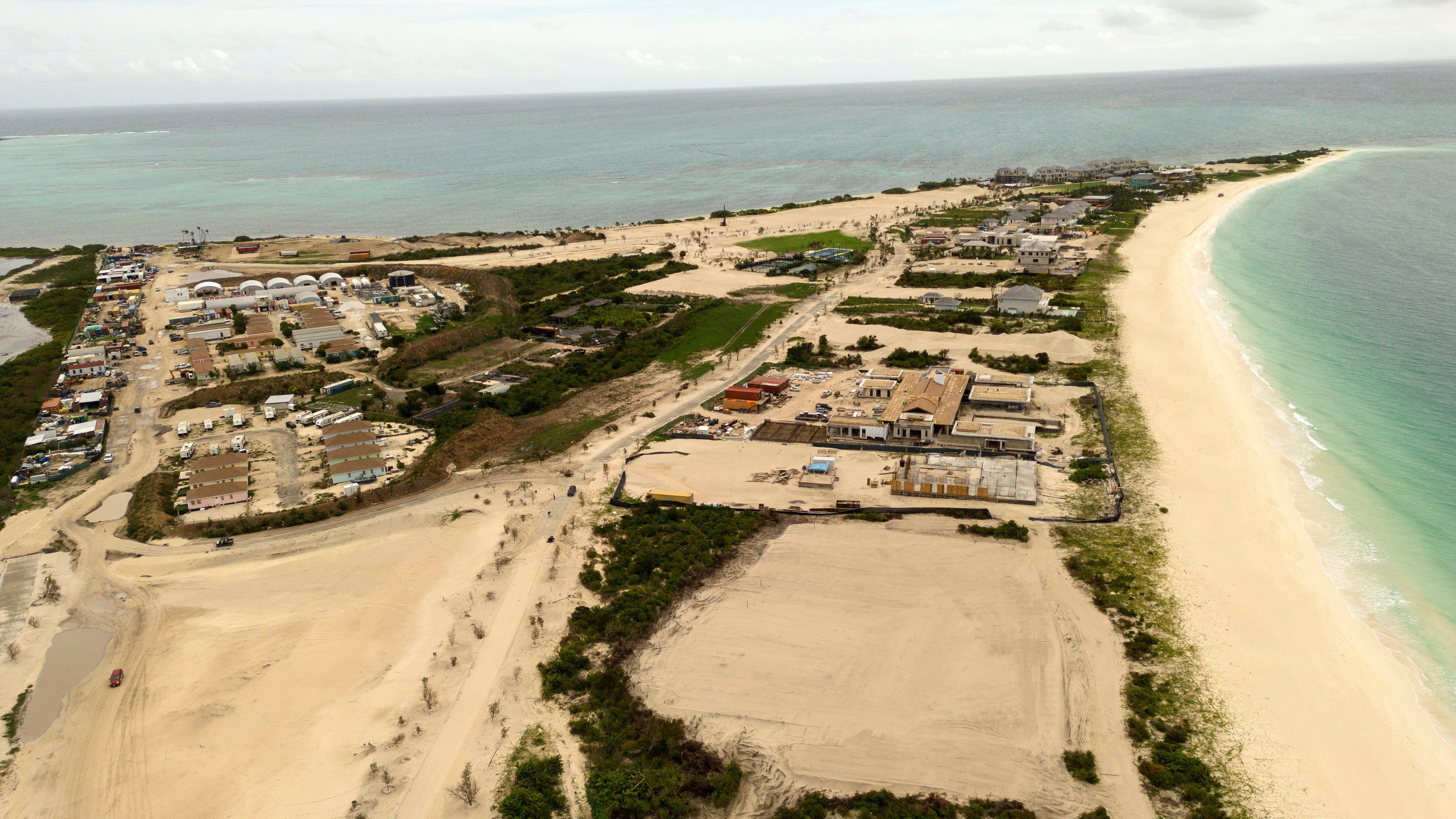A retired teacher and marine biologist fighting the government win an appeal to protect Barbuda land
A top court has ruled that two residents of the tiny Caribbean island of Barbuda have the right to challenge construction of an airstrip that critics say endangers fragile ecosystems and was begun without any permits

A top court in London ruled Tuesday that two residents of the tiny Caribbean island of Barbuda have the right to challenge construction of an airstrip that critics say endangers fragile ecosystems and was begun without any permits.
The ruling by the Privy Council is considered a big win for John Mussington, a marine biologist, and Jacklyn Frank, a retired teacher, who launched a legal fight against the government of the twin-island nation of Antigua and Barbuda in July 2018.
“The fact that this ruling comes almost seven years after John first discovered the bulldozing of the forest is no coincidence,” said Sarah O’Malley, an attorney with the U.K.-based nonprofit Global Legal Action Network, which helped attorneys representing the Barbudians. “Environmental activists around the globe are often bogged down with procedural impediments making litigation costly and time-consuming, a subterfuge employed by those destroying the environment for their own profit.”
However, O’Malley said the decision would make it easier for “all who seek to protect nature” to legally challenge government actions.
The government of Antigua and Barbuda had argued that Mussington and Frank were “busybodies” who had no standing to mount a legal fight.
Mussington said the ruling would have “significant implications for citizens of Antigua and Barbuda who have long been suffering from the lack of transparency and accountability from key institutions and officials charged with implementing the planning laws.”
The ruling also is expected to set a precedent for other Caribbean nations fighting to protect land that wealthy foreign investors seek to develop, especially when investors seize upon economic opportunities following a catastrophe or national disaster.
A spokesperson for the office of Prime Minister Gaston Browne and a representative for the development did not respond to messages seeking comment about the decision.
The ruling by the Privy Council allows the two Barbudians to challenge an April 2021 decision by the Court of Appeal of the Eastern Caribbean Supreme Court that found the residents were not allowed to take legal action against the government.
While Antigua and Barbuda obtained its independence from the U.K. in 1981, it remains under a constitutional monarchy with King Charles as its head of state and the Privy Council as its final court of appeal.
One Privy Council judge, David Hope, argued that environmental issues can be raised by someone even if they are not personally affected by a certain action. He gave an example of construction of wind turbines on a route used by an osprey.
“The osprey has no means of taking that step on its own behalf, any more than any other wild creature. If its interests are to be protected, someone has to be allowed to speak on its behalf,” he wrote.
The ongoing airport construction on Barbuda is part of a deal involving the government, the Barbuda Council and PLH (Barbuda) Ltd., established by U.S. billionaire John Paul DeJoria, co-founder of the Paul Mitchell hair products company. Also involved is U.S.-based Discovery Land Co., founded by Michael Meldman of Casamigos Tequila.
The companies plan to build 495 upscale homes, an 18-hole golf course, a beach club and a natural gas storage facility on more than 600 acres (240 hectares) of protected wetland.
The developers began work on the airstrip around September 2017, after the government evacuated the entire island of Barbuda following Hurricane Irma, a Category 5 storm that was the strongest hurricane ever observed in the open Atlantic.
Construction began without an environmental impact assessment or a license from the Barbuda Council to clear forest, according to Global Legal Action Network. In addition, there were no public meetings notifying anyone of the construction, and an application for a development permit wasn’t submitted until after construction began.
About 400 acres (160 hectares) that is home to the Barbuda fallow deer and red-footed tortoise already have been cleared to build the airport.
Mussington and Frank also have argued the construction could impact the island’s groundwater supply.
The airstrip is largely completed, and government officials have said that “even if the airstrip was built in violation of development control the airstrip could not be ‘unbuilt,’” according to Monday’s ruling.
The Privy Council noted that if a court finds that the government’s Development Control Authority acted outside of its power, “the remedies potentially available would include an order requiring the land be restored to its original state.”
Mussington and Frank celebrated the ruling, but Frank remained cautious. Another lawsuit filed by a fisherman and tour guide against the government of Antigua and Barbuda over construction of two private villas in a national park is pending in court.
“Despite having won, we Barbudans recognize that the fight for our land is not over,” she said. “We plan to continue to keep fighting in order to protect what is ours and preserve it all for our future generations, just as our ancestors have done for us.”